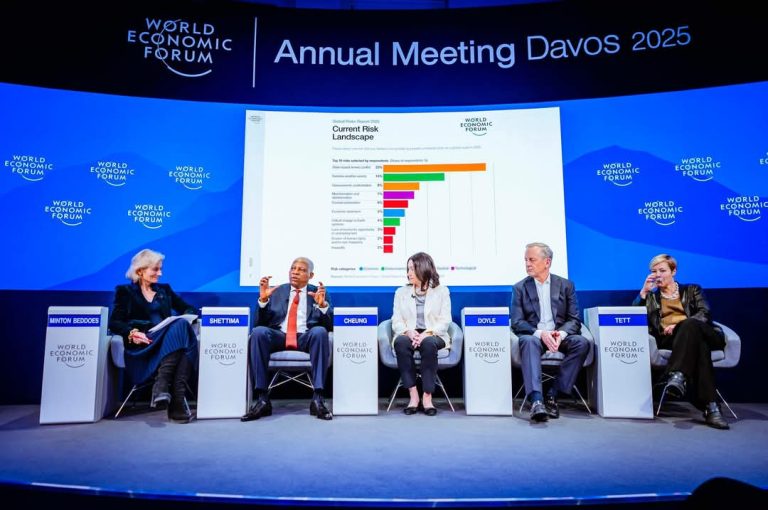The World Economic Forum (WEF) has announced that Nigeria reached its highest level of women working in 2025.
According to WEF’s 2025 Global Gender Gap Report, the number of women in the workforce in Nigeria increased to 95.6%, up from 89.9% last year.
This improvement helped Nigeria’s score for women’s economic participation go up by 3.6 points. It was one of the few areas where Nigeria did well in terms of gender equality.
Even though more women are working, Nigeria dropped one place in the global rankings to 124th. This was because fewer women are in politics and education gaps between men and women have grown.
The Global Gender Gap Index tracks how equal men and women are in four main areas: jobs and the economy, education, health, and political power.
Since it began in 2006, the index has been the longest-running way to measure how countries are improving gender equality over time.
The report said that Nigeria still has more men than women and ranked 124th in 2025. It closed 64.9% of its gender gap but lost one place and dropped by 1 percentage point compared to 2024. Nigeria’s best improvement was in jobs and economic opportunities.
Some positive changes include a big rise in women joining the workforce and a better balance in how much men and women earn. Women’s income increased after four years of staying low. This shows Nigeria is moving in the right direction for workplace equality.
But Nigeria did not improve in the other three areas. The biggest problem was in politics, where fewer women are now in ministerial roles—down from 17.6% in 2024 to just 8.8% in 2025.
In education, literacy rates improved for both men and women, but men improved more. This made the gap between men and women in education wider.
In health, both men and women in Nigeria are living healthier lives, but men saw a bigger improvement than women.
WEF Managing Director Saadia Zahidi said that investing in gender equality can help countries grow stronger and more successful. This report helps leaders see how their country is doing and where they can improve.
In Africa, Namibia did the best in gender equality, ranking 8th in the world. Cape Verde came next (30th), followed by South Africa (33rd).
Worldwide, Iceland stayed the top country for gender equality for the 16th year in a row, scoring over 90%. The other top countries were Finland, Norway, the UK, and New Zealand.
The report said the global gender gap is now 68.8%, a small improvement from 68.4% last year. But it could still take 123 years to fully close the gender gap around the world.


